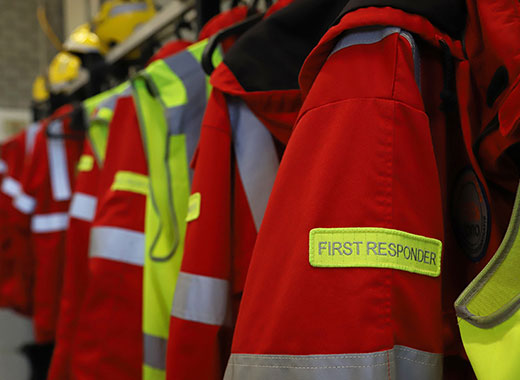Hello East St Louis, Illinois • Winter Issue | 7
Freight Carrier Selection Checklist for Businesses in East St. Louis
Selecting a freight carrier is one of the most essential choices a business can make in managing its supply chain. A reliable partner helps transport goods over long distances, keeps costs under control, and protects both raw materials and finished products. A poor choice can disrupt business operations, lead to unexpected expenses, or erode customer trust. For companies in East St Louis and across the United States, asking a few key questions before hiring a carrier can make all the difference.
The first question to address is whether the carrier serves the routes that matter most. A trucking company might have a strong reputation locally but limited reach for nationwide shipments. Businesses that rely on fulfillment centers spread across multiple states need assurance that their carrier can effectively cover long distances. Others may only need regional service, but even then, consistency is vital. Confirming routes early avoids surprises when time sensitive shipments must move quickly.
The second issue is whether the carrier can handle the specific type of freight involved. Not all loads are the same, and not all airlines are equipped to manage a wide range of needs. Dry van trailers are a standard choice for packaged goods, while flatbed trucks are essential for construction supplies and oversized equipment. Hazardous materials require certified handling in accordance with federal regulations. Some industries demand temperature control for perishable products. Others look for warehouse operations, inventory management, and even help with loading and unloading. Matching carrier capability with your exact freight requirements protects both product integrity and business continuity.
Safety performance is the third point on the checklist, and it should not be overlooked. Every carrier maintains a safety record that reflects accident history, regulatory compliance, and insurance claims. A strong record often signals lower risk and fewer delays. Companies shipping hazardous materials, fragile goods, or high value items benefit most from this assurance. Checking databases and references is one of the simplest steps businesses can take to avoid long term problems.
Beyond the three core questions, other factors play into dependability. Warehousing is the process of storing goods until they are needed, and many carriers now integrate warehouse operations into their services. Some even offer warehouse management systems, known as WMS, to improve efficiency. These tools allow businesses to manage inventory, track shipments, and streamline supply chain management more effectively. When carriers combine trucking with warehousing, they provide more flexibility for companies that rely on both transport and storage.
Communication and responsiveness also matter. A carrier that provides accurate tracking, quick updates, and reliable scheduling support will help companies manage operations more smoothly. Some businesses test a carrier with smaller loads before making long term commitments, using these trial runs to evaluate performance in real conditions.
In East St Louis and across the Midwest, freight carriers range from small regional firms to large national operators. The best fit depends on the size of the business, the type of products moved, and the complexity of the supply chain. Carriers that can transport goods efficiently, maintain warehouse operations, and handle a wide range of shipments become true partners in long term growth.
Choosing a freight carrier is not simply about finding the lowest rate. It is about ensuring that freight moves safely, inventory is managed effectively, and business operations stay on track. A careful checklist that covers routes, freight types, and safety records lays the groundwork for success. For companies that depend on reliable supply chain management, the time spent choosing the right partner pays off in stability, reduced risk, and costs managed effectively.
Selecting a freight carrier is one of the most important choices a business can make in managing its supply chain. A reliable partner helps transport goods across long distances, keeps costs controlled, and protects both raw materials and finished products. A poor choice can disrupt business operations, create unexpected expenses, or damage customer trust. For companies in East St Louis and across the United States, asking a few key questions before hiring a carrier can make all the difference.
The first question to address is whether the carrier serves the routes that matter most. A trucking company might have a strong reputation locally but limited reach for nationwide shipments. Businesses that rely on fulfillment centers spread across multiple states need assurance that their carrier can cover long distances effectively. Others may only need regional service, but even then, consistency is vital. Confirming routes early avoids surprises when time sensitive shipments must move quickly.
The second issue is whether the carrier can handle the specific type of freight involved. Not all loads are the same, and not all carriers are equipped to manage a wide range of needs. Dry van trailers are a standard choice for packaged goods, while flatbed trucks are essential for construction supplies and oversized equipment. Hazardous materials require certified handling under federal regulations. Some industries demand temperature control for perishable products. Others look for warehouse operations, inventory management, and even help with loading and unloading. Matching carrier capability with your exact freight requirements protects both product integrity and business continuity.
Safety performance is the third point on the checklist, and it should not be overlooked. Every carrier maintains a safety record that reflects accident history, regulatory compliance, and insurance claims. A strong record often signals lower risk and fewer delays. Companies shipping hazardous materials, fragile goods, or high value items benefit most from this assurance. Checking databases and references is one of the simplest steps businesses can take to avoid long term problems.
Beyond the three core questions, there are other factors that play into dependability. Warehousing is the process of storing goods until they are needed, and many carriers now integrate warehouse operations into their services. Some even offer warehouse management systems, known as WMS, to improve efficiency. These tools allow businesses to manage inventory, track shipments, and streamline supply chain management more effectively. When carriers combine trucking with warehousing, they provide more flexibility to businesses that rely on both transport and storage.
Communication and responsiveness also matter. A carrier that provides accurate tracking, quick updates, and reliable scheduling support will help companies manage operations more smoothly. Some businesses test a carrier with smaller loads before making long term commitments, using these trial runs to evaluate performance in real conditions.
In East St Louis and across the Midwest, freight carriers range from small regional firms to large national operators. The best fit depends on the size of the business, the type of products moved, and the complexity of the supply chain. Carriers that can transport goods efficiently, maintain warehouse operations, and handle a wide range of shipments become true partners in long term growth.
Choosing a freight carrier is not simply about finding the lowest rate. It is about ensuring that freight moves safely, inventory is managed effectively, and business operations stay on track. A careful checklist that covers routes, freight types, and safety records lays the groundwork for success. For companies that depend on reliable supply chain management, the time spent choosing the right partner pays off in stability, reduced risk, and costs managed effectively.
Matching carrier capability with your exact freight requirements protects both product integrity and business continuity.
trailers are a standard choice for packaged goods, while flatbed trucks are essential for construction supplies and oversized equipment. Hazardous materials require certified handling in accordance with federal regulations. Some industries demand temperature control for perishable products. Others look for warehouse operations, inventory management, and even help with loading and unloading. Matching carrier capability with your exact freight requirements protects both prod...


















